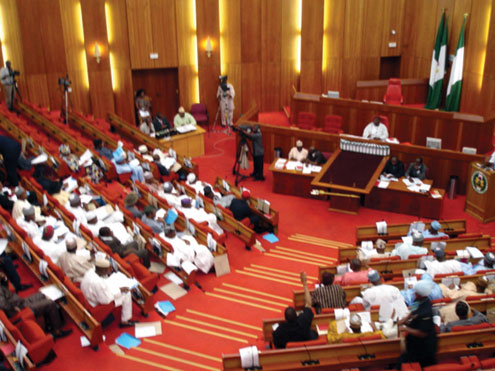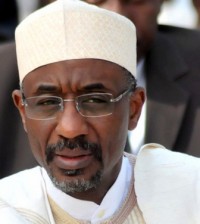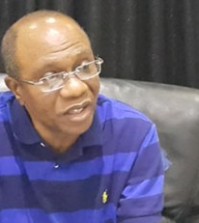New Banking Laws Underway – CBN Gov
Four new laws is on the way that will tighten the financial sector regulations, the Central Bank of Nigeria (CBN) Governor Sanusi Lamido Sanusi yesterday said.
The bills are the Electronic Transaction Bill, the Financial Ombudsman Bill, the Nigerian International Financial Centre (NIFC) Bill, and the Alternative Dispute Resolution (ADR) Regulatory Commission Bill.
Sanusi spoke in Lagos at The Knowledge Exchange forum organised by the law firm of Olaniwun Ajayi LP. It had the topic: Financial Systems Stability: Trends and Opportunities.
As part of its contribution to the global regulatory landscape, the book: Asset Resolution, written by Ajayi, was presented at the event by the Attorney-General of the Federation, Mr Mohammed Adoke (SAN). He was represented by Prof. Deji Adekunle. Sanusi said the Electronic Transaction Bill, if passed into law, would give effect to the admission in evidence of all electronically generated statements of account which the Evidence Act currently forbids.
The Financial Ombudsman Bill, he said, aims to facilitate faster resolution of financial disputes, while the Alternative Dispute Resolution (ADR) Regulatory Commission Bill is proposed to create an ADR Commission to promote and regulate the practice and use of ADR in Nigeria.
The Nigerian International Financial Centre (NIFC) Bill, if enacted, will establish the NIFC for the purpose of creating a world class financial zone in Nigeria
Sanusi disclosed that the CBN was looking to establish a Microfinance Development Fund (MDF) with a view to deepening the financial markets through the introduction of new products and appropriate support/control structures.
He regretted that implementation of the new cash-less policy is still being resisted by some Nigerians despite its good intentions.
The policy’s aim, he said, is to ensure that a larger proportion of currency in circulation is captured within the banking system, thereby enhancing the efficacy of monetary policy operations and economic stabilization measures.
“The Cashless policy has been resisted despite the prospects for economic growth and development,” Sanusi said.
The CBN boss said the government would continue to push for a cashless society, adding that with the “successful commencement of ‘Cash-Lite Lagos,’ the policy will be “rolled out to other towns later this year.”
According to Sanusi, the policy was introduced because the Nigerian economy is heavily cash-oriented in the transaction of goods and services, which increases the operational costs of the banking sector.
Besides, costs are transferred to customers in the form of higher service charges and high lending rates, with the direct cost of cash management to the banking industry estimated to be about N192 billion by 2012.
Sanusi said through what he called the Shared Services Initiatives, the number of Automatic Teller Machines (ATM’s) is expected to increase, which should reduce the cost of operations and promote a cashless society.
Speaking on opportunities for the future, Sanusi said: “The progress made with our banking reforms means that our banks are now better positioned for growth and contributing to the real economy. Significant progress has been made in the area of agriculture, a sector with significant room for growth and profitable financing.
“We have started to tackle our power issues, the resolution of which would be a game-changer for our already significant economic growth. The Nigerian market offers good banking, business and advisory opportunities for firms with an appetite for Sub-Saharan Africa.”
Sanusi also spoke on challenges, saying: “The introduction of the new banking model has come with some challenges. For example, non-interest banking has been received with some negativity in some quarters and given religious connotations.
“The high cost of doing business in Nigeria as a result of weak infrastructure. The high growth rates recorded in the last five years have not been inclusive, thus perpetuating already high unemployment and poverty levels.’








